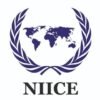
The Plague and The Future of Great Power Politics – Prof. John J. Mearsheimer
Watch it on NIICE Nepal Youtube Channel
The Plague and The Future of Great Power Politics
August 4, 2020
The webinar was held by NIICE, Nepal, and was led by Prof. John J. Mearsheimer. Prof. John J. Mearsheimer is the R. Wendell Harrison Distinguished Service Professor of Political Science at the University of Chicago, where he has taught since 1982. He received his Ph.D. in 1980 from Cornell University. He has previously worked with Brookings Institution, Harvard University's Center for International Affairs, the Council on Foreign Relations in New York, and several others. Professor Mearsheimer has written extensively about security issues and international politics. Some of his books are Conventional Deterrence (1983), which won the Edgar S. Furniss, Jr., Book Award; Liddell Hart and the Weight of History (1988); The Tragedy of Great Power Politics (2001, 2014), which won the Joseph Lepgold Book Prize and has been translated into nine different languages; The Israel Lobby and U.S. Foreign Policy (with Stephen M. Walt, 2007), which made the New York Times best-seller list and has been translated into twenty-four different languages; Why Leaders Lie: The Truth about Lying in International Politics (2011), which has been translated into twelve different languages; and The Great Delusion: Liberal Dreams and International Realities (2018) which has been translated into five different languages. He has extensively contributed to different journals, magazines, and newspapers. Professor Mearsheimer holds a number of awards and honors. He received the Clark Award for Distinguished Teaching when he was a graduate student at Cornell in 1977, and he won the Quantrell Award for Distinguished Teaching at the University of Chicago in 1985. He was selected as a Phi Beta Kappa Visiting Scholar for the 1993-1994 academic year. He received honorary doctorates from universities in China, Greece, and Romania; and in 2003, he was elected to the American Academy of Arts and Sciences. The Great Powers play a huge role in shaping international politics and the international order. There are 2 fundamental questions when talking about the global balance of power: 1) How many great powers are there? 2) How powerful is each great power? During the Cold War period (1945-1989), there were two great powers, US and USSR, and the world was in a bipolar order. Post-Cold War (1990-2016) period saw a remarkable advent of a unipolar world with the US as the only great power. Today, in the Contemporary period (2017-) the world is in a multipolar order with the US, China, and Russia as the three great powers.
There are two building blocks of power, i.e., two fundamental factors of defining great power: 1) the size of the population of the country and 2) the Wealth they possess. The structure of the international system on the basis of these two factors would lead to a great power ranking with the US being the most powerful, followed by China, and then Russia. In the 2020-2050 vision, the US would still be a remarkably powerful country with a growing population and a dynamic and powerful economy. China on the other hand would be on top in terms of population and with four times gross national income compared to that of the US. Thus, China in the coming decades would prove to be a real threat to the US or might overtake the US with more population as well as wealth. Russia on the contrary would be a declining power with significant demographic and economic problems due to its heavy dependence on oil with no evidence of modernizing its economy.
The interest of the great powers lies in the regions that matter to them the most, which are: 1) Neighbourhood 2) Other Great Powers’ regions 3) Regions with critical resources, like oil. For example, the regions of maximum interest to the US would be Western Hemisphere, Europe and North East Asia, and the Persian Gulf. Due to this, the principal goal of the great powers would be two-fold: 1) To achieve regional hegemony and 2) to Prevent other great powers from becoming hegemons in their regions. This explains the American Grand Strategy of the 20th century where the US became the first and the only hegemon in modern history and then prevented the other four great powers from becoming hegemons of neither Europe nor Asia.
This also explains the US-China competition in the contemporary period. US does not want China to be a regional hegemon because then China would not have to worry about security in Asia and it would then interfere in the western hemisphere, an important region of the US. In the coming years, China threatens to be as powerful as the US. If this comes to be true then China would become a regional hegemon and try to dominate Asia, further it will aim not only to be the most powerful in Asia but also to push US military forces out of Asia. For this reason, the US will go to great lengths to prevent China from becoming a regional hegemon and will continue pivoting Asia as Hillary Clinton once said. The fore coming Sino-American war, if it ever occurs, would be the most dominating geo-political feature of the 21st century.
Prepared by Shriya Mishra, NIICE Intern

Recent Comments